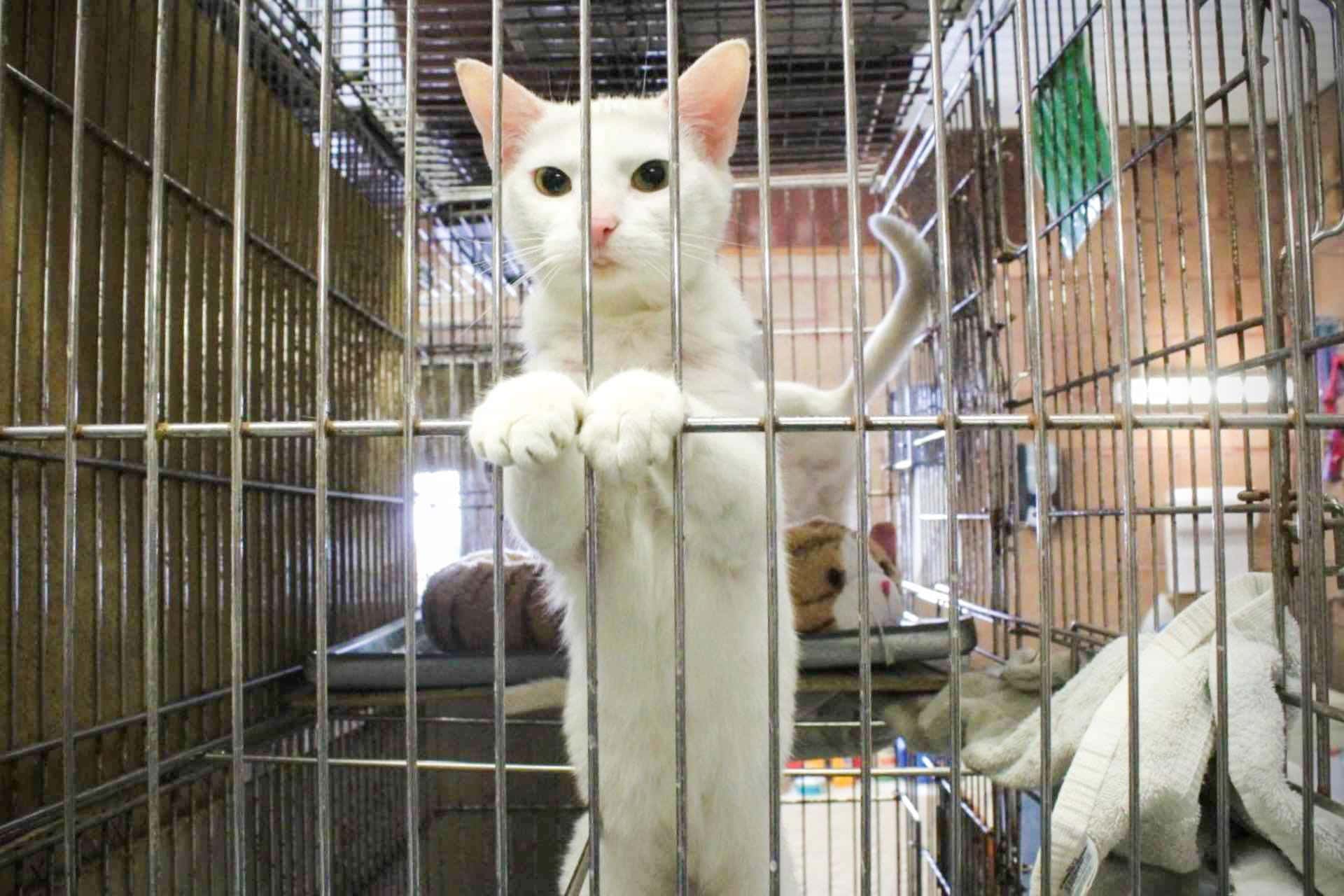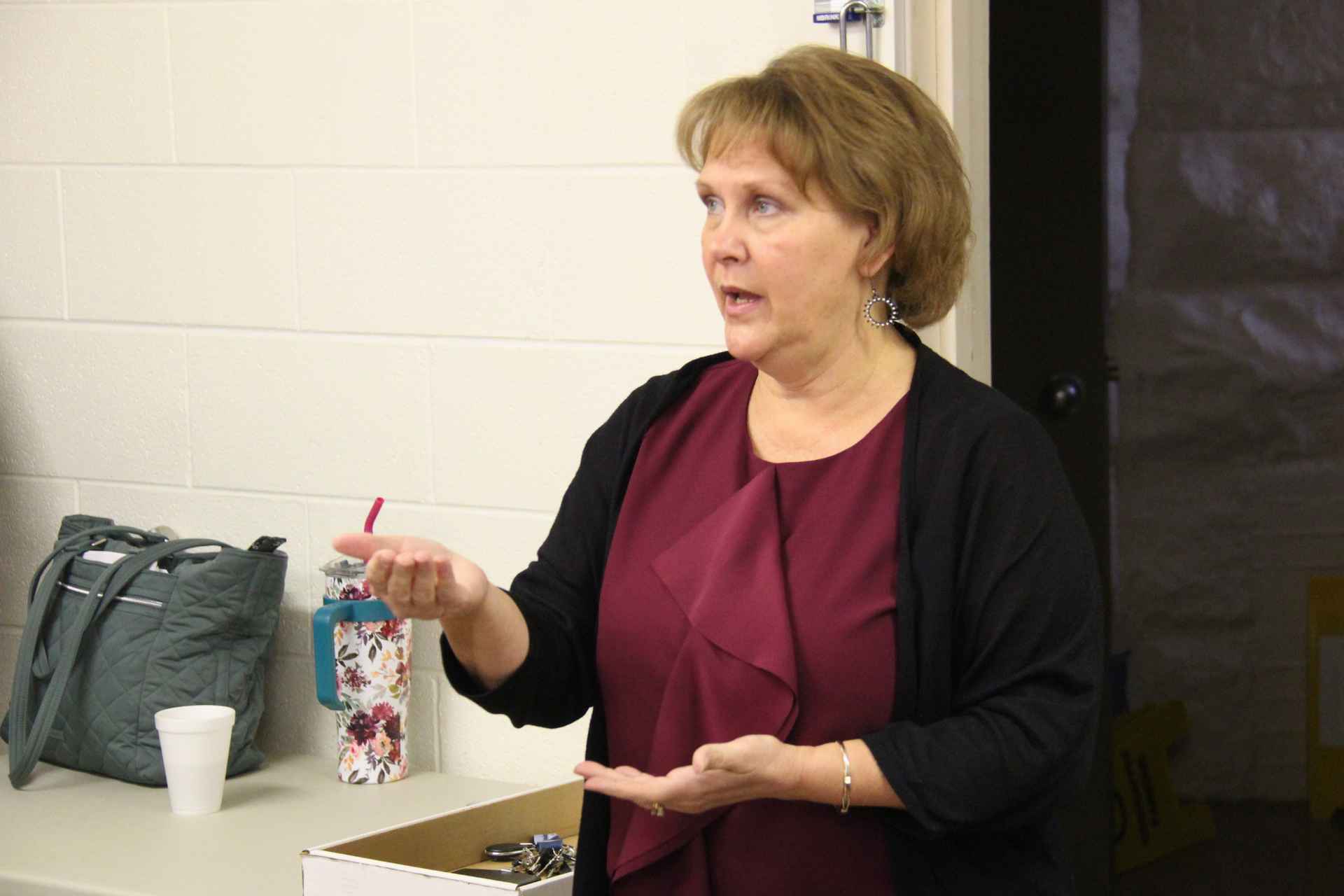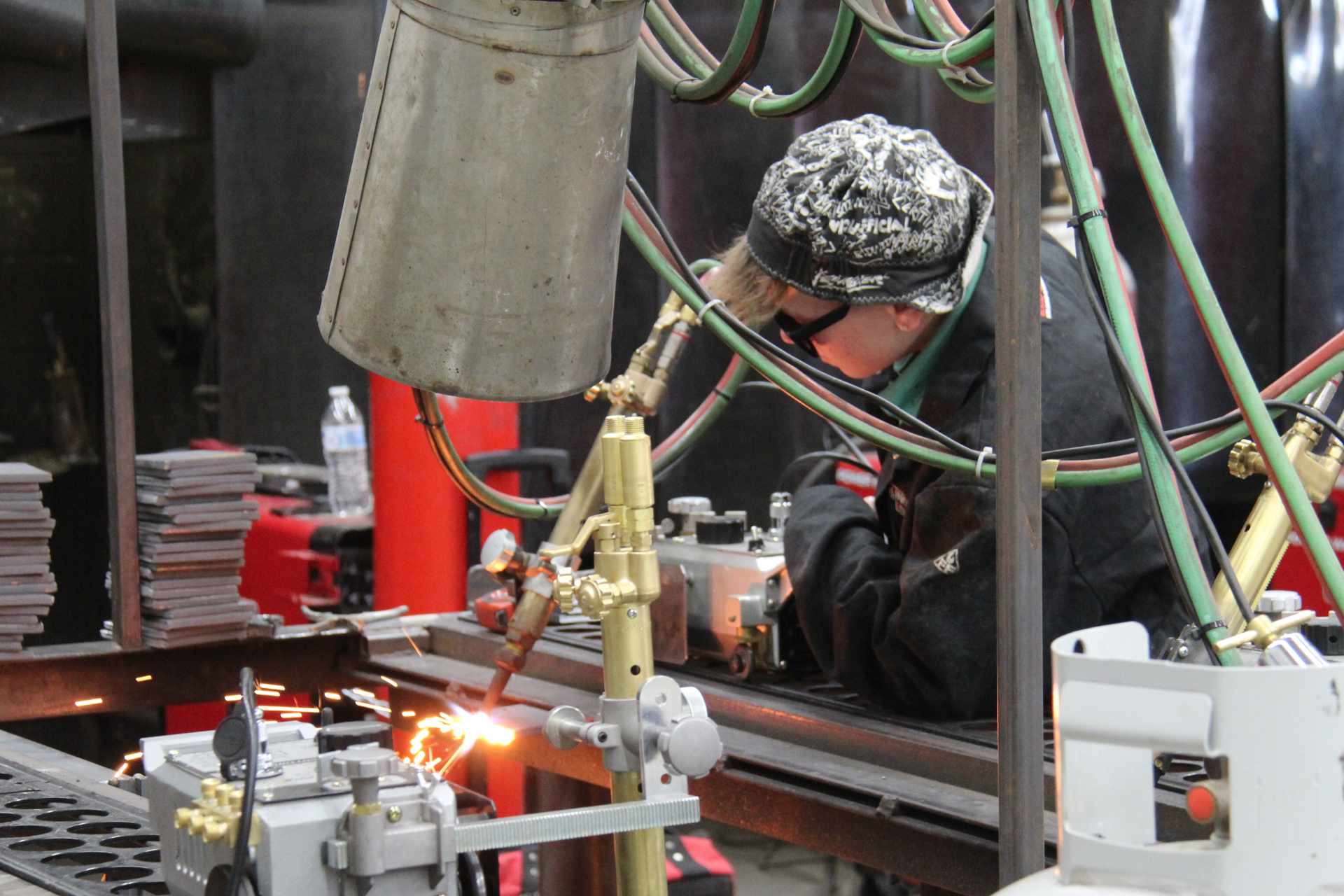BUCKHANNON – Are you pondering introducing a new furry, four-legged friend into your life, heart and home?
The volunteers at the Lewis-Upshur Animal Control Facility and LUAC director Jan Cochran have a couple words of advice for possible or soon-to-be pet parents. Most importantly, they recommend doing your homework first, and once you take the plunge, giving your new companion plenty of time to get accustomed to its new ‘fur’ever home.

Karen Sanford, LUAC volunteer, said the most important thing a new pet owner should do is research what kind of dog they are looking for, including breed and energy level.
“They should also buy age-appropriate toys in advance, somewhere to sleep, and, depending on the age of the dog, people should also research crate training if he’s going to be left alone for any amount of time and food, depending on what they’re used to eating,” Sanford said. “I would contact whoever had the dog beforehand, so it doesn’t get an upset stomach.”
When it comes to walking their new pup, Sanford said delving into some online research regarding leash training could make a world of difference.
“If they want to leash train, they should research the most effective leash training and what kind of leash to get, what kind of collars and a vet – find a vet ahead of time,” she said.

She emphasized the importance of having patience with a new dog while she or he gets acclimated to a new space.
“Patience probably tops anything: don’t overestimate the dog and understand that it’s all new to him,” Sanford said. “The dog doesn’t know that it’s safe, it doesn’t know it’s going to get food, it doesn’t know the people around [her or him] aren’t going to hurt him, and it has to learn those things. Understand the owner has some responsibility to keep things out of reach of the dog – dogs think everything is something to chew on, so don’t leave your shoes out, try to look at things through dog’s eyes.”
New owners should not expect a new addition to the family to behave perfectly off the bat because an animal could have picked up bad habits, suffered trauma or if you’re adopting a puppy, it simply may not know better.
“Try to understand why the dog may be doing things it shouldn’t be doing – maybe it’s been abused so again, give it space, and a puppy is going to be a puppy. It may not be potty-trained right away because it doesn’t understand,” Sanford said. “I had a Labrador that took months and months and months when it was a puppy, so look at the dog’s cues that it’s giving you and try and make it a relationship. It’s not just a boss and a piece of property – you have to form a bond and that takes time.”

It’s also important for other dogs in the home to meet the potential new dog before adoption takes place.
“It’s always recommended if you already have a dog to bring that dog with you before you adopt a dog to see if they’re compatible,” Sanford said. “They’re not going to be best buds at first, but some dogs that get along with a lot of dogs might not get along with another dog and it’s important to know if the two are compatible.”
While a new dog is a lot of work, she said it can be worth it – both for the owner and the pup – to have a new companion.
“It just gives an energy to a home that you just can’t get anywhere else, and if you are willing to put the work in, it can make the home more lively – it’s just another level of companionship,” Sanford said. “If you aren’t willing to put in the work, then don’t bother. Find out ahead of time ahead of time what’s going to be involved and make the decision.”
LUAC is also home to felines looking for homes and LUAC employee Christy Riffle said in some ways, they can be easier than dogs but are a different kind of pet.
“Cats are a whole lot easier, so if you’re a person that travels, a cat is going to be more ideal for you than a dog,” Riffle said. “Because you have to board a dog, [but with a cat], if you’re only going away for the weekend you can leave it at home with his litter box and everything and you’re fine – leave Friday come back Monday and everything’s fine.”
She said before getting a cat, the family should all want the new family member and be ready to acclimate the cat to their new home.
“Have one room just for that cat, have its litter box, and its food and water in there. If you can shut the door, that’s great; we always recommend either the bathroom or even a spare bedroom, so that the cat can get used to the smells of your house and the noises of your house,” Riffle said. “They know that room is their safety place and that’s where their litter box and everything is, and usually, we say keep the cat in the room for three days to a week, just in that room and you go in there and just sit and let the cat come to you.”
“Don’t chase the cat all over the room,” she emphasized. “Just let it get used to everything slowly and then open up the door and let the cat start exploring the house.”

New cat owners should prep the home with toys and scratching posts so the cat wont scratch furnishings it shouldn’t.

“If they get a kitten, make sure to buy some toys that keep the kitten’s attention and scratching posts if you’re worried about them scratching your furniture. Stores have different kinds of posts with the catnip, and that entices the animal to scratch on that instead of on any of your furniture,” Riffle said. “If it’s a kitten, you need to have kitten food for a little over a year old and then switch to an adult formula of food. If you want it to have its own personal bed, if it’s not going to be sleeping in your bed, they make a whole slew of those types of [bed areas] that the cat can choose from.”
Cochran, who heads the Lewis-Upshur Animal Control Facility, said anyone adopting or purchasing a new animal should be prepared to do some form of house training.
“If you’ve never housebroken an animal, you need to read up on housebreaking. Even if there’s a dog here and it’s housebroken, when it gets to a new place, it is going to be stressed,” Cochran said. “It is probably going to have few accidents and the thing is, don’t keep the pet for 24 hours and bring it back. Give it a chance [because] you’re not going to see the dog’s true colors for about two weeks anyway because they’re going to go be nervous and scared.”
Cochran also recommended looking up how expensive vet bills will be for regular checkups and possible other treatments.
“If someone released an animal to us and it’s fixed or if LUV 4 Animals sponsored an animal, then the adoption fee will become a $30 for a dog or $15 for a cat and if that’s the case, everything’s good for a year because those animals got all their shots,” Cochran said. “After that year you expect your exam call, your follow-up shots and other rabies because rabies is only good for a year. I would call your vet, check the prices on things and see if that fits into your budget.”

If you’re interested in adopting a new furry, four-legged friend, check out pets available at the Lewis-Upshur Animal Control facility here, or find them on the Facebook pages of LUV 4 Animals or the Claws & Whiskers Rescue Foundation.




















